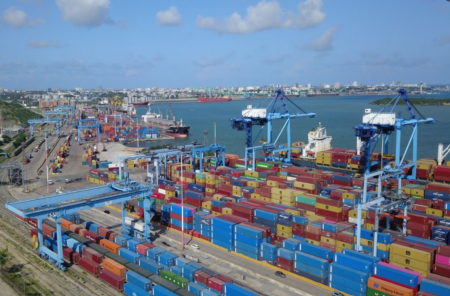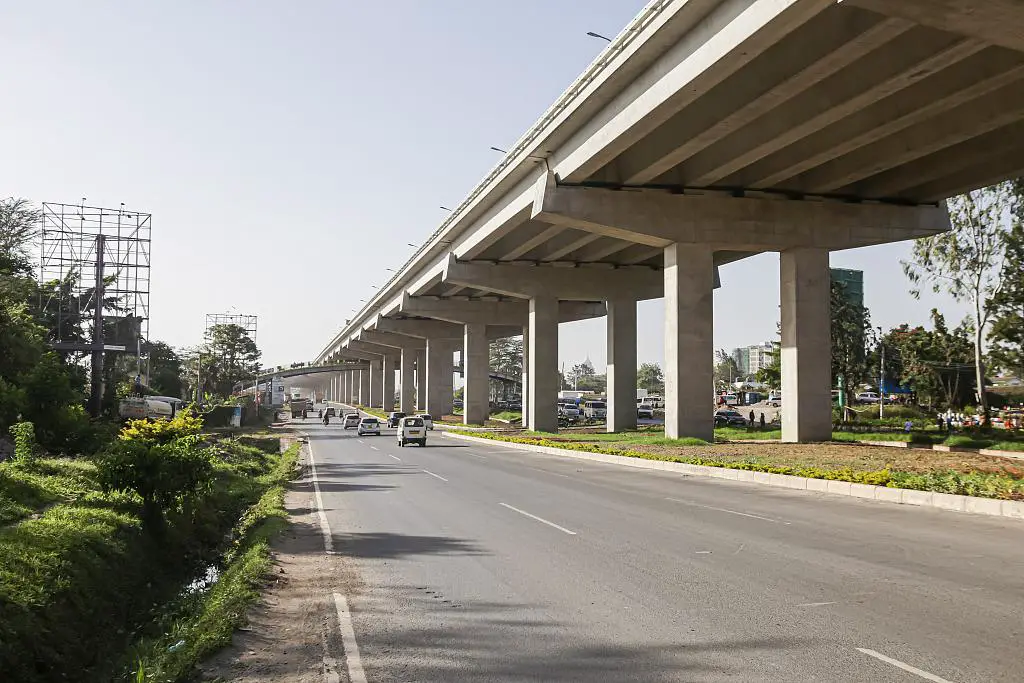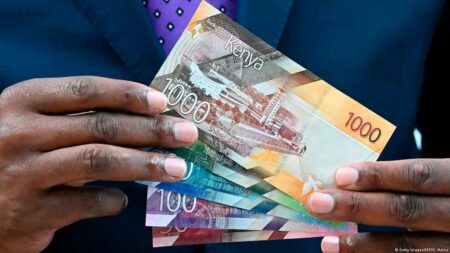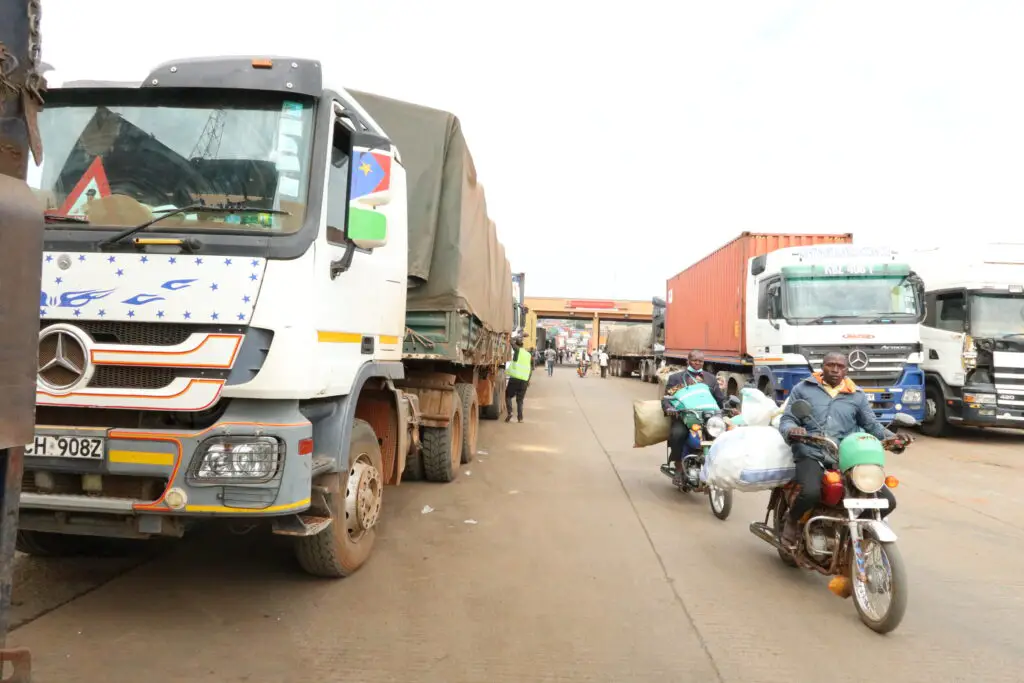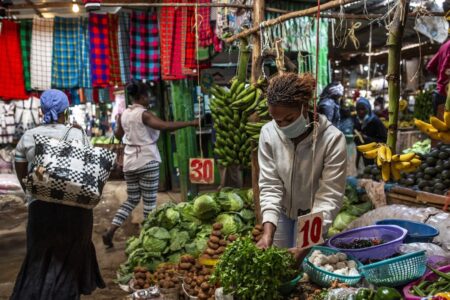- Africa’s new dawn: the rising role of digital and AI in agriculture
- Can Dangote Refinery Transform Africa Energy Ambition
- Gallup Survey: 80 per cent of Kenyan Workers Are Disengaged and Seek New Opportunities
- Madagascar Man Freed from 5KG Tumor After 15-Year Struggle
- How women in Africa are perceived and treated
- Sugar consumption in Kenya to Increase to 1.23 Million Tonnes
- Can Somalia and Turkey Oil deal Bring Change in Somaliland
- Remittances to Kenya dropped to $371.6 million in June, marking a six month low
Browsing: Kenya Revenue Authority (KRA)
- Legal ruling favors Kenya Ports Authority (KPA) and Kenya Revenue Authority (KRA), allowing clearance of Sh145 million consignment despite ownership objections.
- Dispute centered on transfer of property and risk to Dooba Enterprises Ltd, with objecting companies claiming previous ownership based on contractual agreements.
- Case highlights importance of clear contractual agreements, documentation, and effective dispute resolution mechanisms in international trade.
An array of goods valued at $1 million (KSh145 million) is set to be cleared from the Mombasa port after a legal battle between five companies and two key entities, the Kenya Ports Authority (KPA) and Kenya Revenue Authority (KRA). The consignment, held in four containers, faced opposition from the companies, including Ningbo Ningshing Trading Group Inc., Top Anchor Industries, Ningbo Jiaje Water-Meter Manufacture Co. Ltd Inc., Ningbo Texilong Pipe Industry Co. Ltd, and Quanzhou Datouyi Technology Co. Ltd.
However, Mombasa High Court judge Kizito Magare ruled in favor of KPA …
- Kenya’s distressed debt levels are pushing the country in a tight spot following years of successive borrowing, the Institute of Public Finance (IPF) says in its latest Macro Fiscal Analytical Snapshot Report.
- This is compounded by the inability of the private sector to create woefully insufficient jobs for millions of young people entering the job market annually.
- The report notes that since 2014, persistent high fiscal deficits have resulted in a swift escalation of public debt, now standing at 70 per cent of the GDP.
Kenya risks missing its economic growth targets in the medium-term as the country grapples with high debt distress and a deteriorating macroeconomic operating environment.
According to the Institute of Public Finance (IPF) in its latest Macro Fiscal Analytical Snapshot Report, the country finds itself in a tight spot following years of successive borrowing.
This is coupled with the inability of the private sector to create …
- Kenyan Shilling, which has been on a free-fall against the Dollar since mid-last year, fell to a record-low of 162 to the greenback with projections it could tumble further into the year.
- The unit has shed over 31 per cent of its value to the dollar year-to-date, as the Fed rate hikes in the US took a toll on currencies across the different markets.
- According to Kenya National Bureau of Statistics (KNBS), the Kenyan shilling also ceded ground against the Euro, Pound Sterling and the Japanese Yen.
The Kenyan government is facing a major headache as the country’s currency continues to fall against the US Dollar and other major currencies, hitting a new low this week.
Kenyan shilling, which has been on a free-fall against the dollar since mid-last year, fell to a record-low of 162 to the greenback with projections it could tumble even further this year.
The local …
- Shipping agents are not allowing cargo to Kenya as they avoid having goods getting stuck at points of entry, says a mobile importer in Nairobi.
- Kenya Revenue Authority is increasingly tightening checks at ports of entry to eliminate under declaration and concealment, which deny the country taxes.
- On average device shipment went down by about 13.5 per cent in the fourth quarter of 2022.
Kenya is hurtling into a severe shortage of smartphones as new tax measures and import regulations pile pressure on traders who have cut on shipments. Traders are projecting that the shortage of smartphones could push up the price of the gadgets by about 40 per cent.
The move follows a decision by the Kenya Revenue Authority (KRA) to plug loopholes used by traders to under declare or conceal the value of gadgets in turn denying the government revenues.
Alice, an importer and dealer within Nairobi’s Central …
- In Kenya, mining yields high-grade quantities of gold, copper, ilmenite and tantalum.
- Kenya is an important source of non-metallic minerals including soda ash, limestone, salt, niobium, fluorspar and fossil fuels.
- Titanium ores have for the last decade remained top mineral forex earner for Kenya.
A plan to give Kenya’s mining sector a makeover is underway, with policymakers banking on reforms that can attract investors as the country seeks to grow the revenue base.
The move comes four years since the 2019 government moratorium on the issuance of new prospecting and mining licenses. At the time, the government had not renewed licenses since 2015 when about 65 companies saw their permits revoked.
Those in operation run under a gazette notice. For companies whose permits expire, they are forced to seek special clearance from the ministry. The freeze on issuance of new licenses was to allow for geospatial surveys to map out …
The East African region has a long history of cooperation stretching back to 1900 when a Single Customs Collection point was established at Mombasa. Still, Non-Tariff Barriers remain a challenge to trade. The first instance of regional integration dates back to 1917 between Uganda and Kenya.…
Kenyan manufacturers have raised concerns over several proposals in the Finance Bill 2023. The country looks forward to the next financial year’s budget that the treasury cabinet secretary will table in June. The country’s National Treasury has proposed several new tax measures. Under these measures, the public and private sectors will cough more taxes to fund the 2023/24 budget.…
- In Kenya, fuel is set to cost more once the taxman effects 16 percent VAT from the current 8 percent, which will make already high pump prices simply prohibitive.
- Starting January 2024, Finance Bill also seeks to increase the advance tax payable on passenger and commercial trucks to $36.52 from $21.91 per year.
- The new tax will simply increase the cost of transportation in Kenya, piling pressure on consumers already overburdened by high food prices amid sluggish economy.
Kenya’s transportation sector is at risk as the government considers fresh fuel VAT increase, which threatens to cripple businesses. Through the Finance Bill, the government is also proposing to increase the advance tax payable on passenger and commercial trucks to $36.52 from $21.91 per year. As a result, investors in the industry might be forced to scale down their operations even as others heap the costs on consumers.
The looming hit by …
- The country is considered East Africa’s strongest economy.
- It is among countries facing a huge challenge of illicit trade, estimated to be valued at above USD6.34 billion (Ksh800 billion).
- According to official government data, up to 70% of imported goods are counterfeits.
Kenya has a domestic market of over 50 million people and is among the leading economies in sub-Saharan Africa.
The country is considered East Africa’s strongest economy, with the region having a GDP of about USD163.4 billion (at purchasing power parity, about USD$473 billion), and the average GDP per capita is about USD941 (at purchasing power parity, $2,722).
In addition to the EAC market, investors in the partner States have access to other African markets such as COMESA, SADC and AfCFTA, as well as international markets through preferential trade arrangements.
The Common Market for Eastern and Southern Africa (COMESA) comprises 21 Member States with a population of 560 …
- KRA started the new financial year on an upward trajectory, after surpassing its July 2021 target
- Pay As You Earn (PAYE) registered a performance rate of 104.2%
- Expects the Gross Domestic Product to grow by 6.3% in FY 2021/22
The Kenya Revenue Authority (KRA) said it had collected KSh 476.646 billion, surpassing the Financial Year 2021-2022, Quarter One (July – September 2021) revenue target of KSh 461.653 billion by KSh 14.992 billion.
In a statement, the Authority said the performance reflected a sustained revenue growth in the first three months of the year, with a performance rate of 103.2% and growth of 30%.
Despite the slow economic growth, KRA said it commenced the new financial year on an upward trajectory, after surpassing its July 2021 revenue target with a surplus of KSh 311 million, after a revenue collection of KSh 152.854 billion against a set target of KSh 152.543 billion, …





